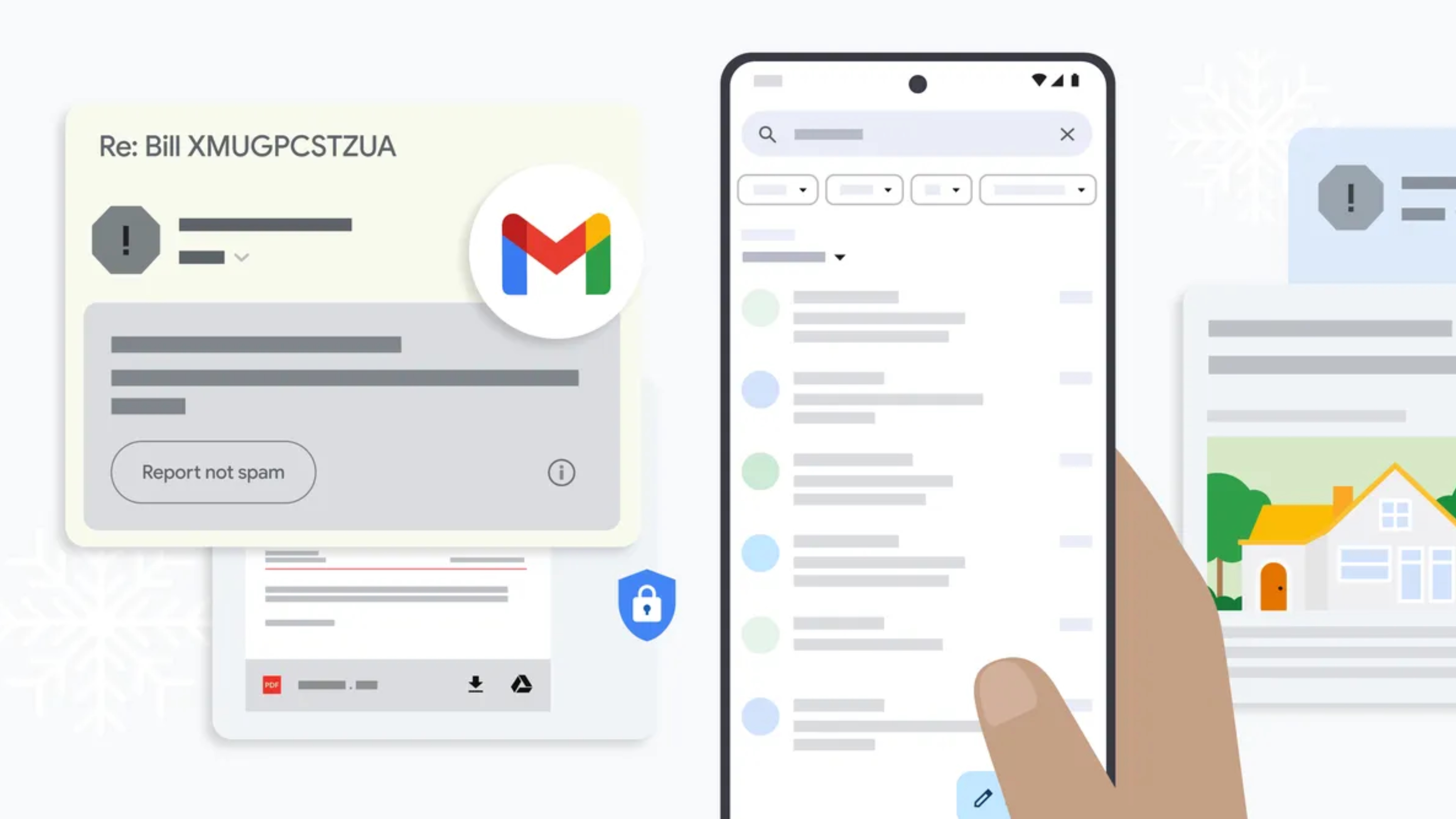What you need to know
- Google says it has seen an uptick in email traffic during the holiday season, and that means Gmail users need to be vigilant to avoid scams.
- The company is leveraging AI models to discern scam emails that it reports having blocked 20% more spam than before, and reviews 1,000 times more user-reported email spam events.
- Google recommends users take the time to stop, think through whether an email is a scam, and report it if it sounds fishy.
The holiday season is well underway, and Google is sharing some tips about how it’s keeping you safe from scams — and what you can do to protect yourself. Google says that although it has seen email traffic blossom since mid-November, users reported 35% fewer scams in Gmail compared to last year. Part of that is due to the company’s AI features that have continually rolled out to Gmail over the course of 2024.
Notably, Google quietly bolstered Gmail’s security capabilities last month. The company rolled out a new AI model designed to protect against phishing scams before Black Friday. “This new model acts like a supervisor for our existing AI defenses by instantly evaluating hundreds of threat signals when a risky message is flagged and deploying the appropriate protections — all in the blink of an eye,” the company explained in a blog post.
These AI tools are powered by large language models (LLM) trained using examples of malware and phishing attempts. “By spotting patterns and responding rapidly, this LLM alone blocks 20% more spam than before and reviews 1,000 times more user-reported spam daily,” Google says.

Google warns that the three most common scams to watch out for during this holiday season are invoice scams, celebrity scams, and extortion scams. Invoice scams are when a person reaches out with a fake invoice, hoping that the user will pay the owed amount. Celebrity scams involve a fake sender posing as a celebrity or famous person to get you to hand over cash, and extortion scams might include threats and elements of fear to force you to give money.
To avoid these scams, the company shared what it calls “golden rules:”
- Slow it down. Scams are often designed to create a sense of urgency, and often use terms like “urgent, immediate, deactivate, unauthorized, etc.” Take time to ask questions and think it through.
- Spot check. Do your research to double-check the details of an email. Does what it’s saying make sense? Can you validate the email address of the sender?
- Stop! Don’t send. No reputable person or agency will ever demand payment or your personal information on the spot.
- Report it. If you see something suspicious, mark it as spam. You’ll be making your Inbox cleaner and helping billions of others too.
When in doubt, users should report potential scams and absolutely avoid sending money at all costs. There are also other scam blockers you should know about, like those in Google Messages and Google Phone.
Get the latest news from Android Central, your trusted companion in the world of Android

